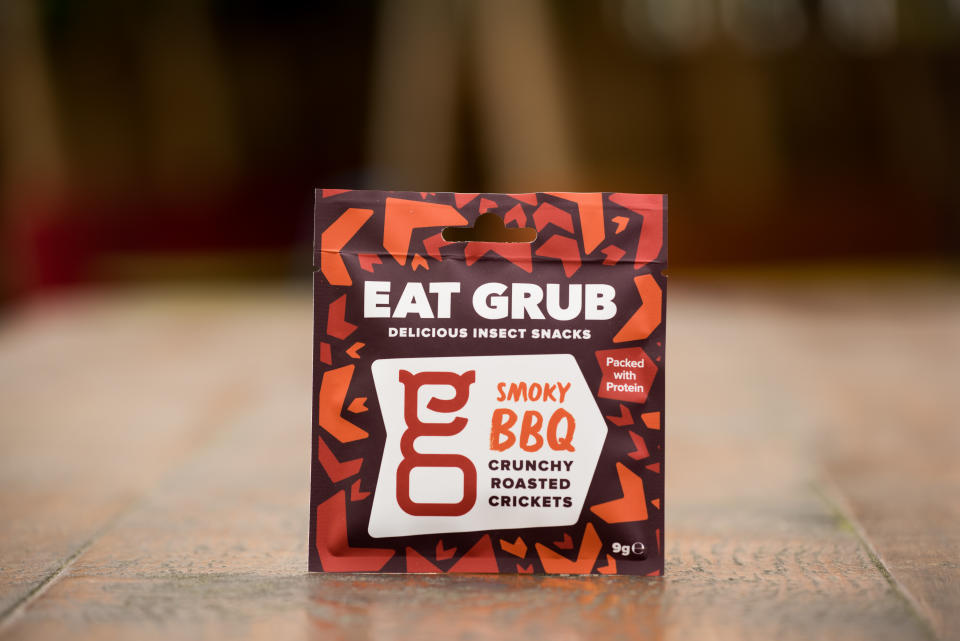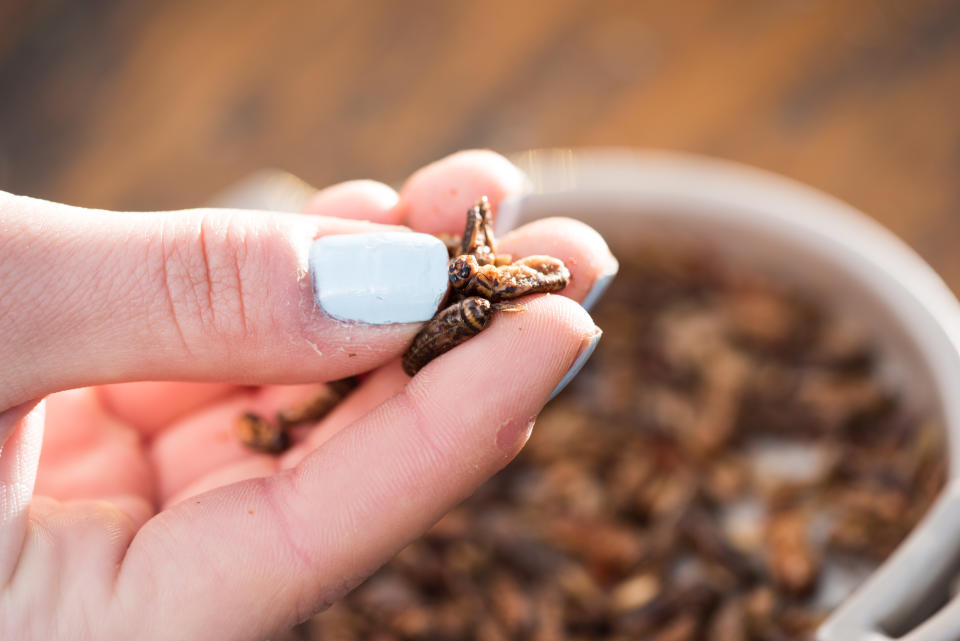Why you really should start eating bugs
With additional reporting by Marie Claire Dorking.
We usually only see people eating bugs during challenges on shows like ‘I’m a Celebrity’ but recent stats suggest that around 2 billion people regularly eat insects as part of their diet.
While the eating of bugs has only really been brought to our attention thanks to a host of shows and viral YouTube videos, the consumption of insects has been taking place for thousands of years.
And a recent study by UK supermarket Sainsbury’s found that 40 per cent of people say they would be open to eating insects and grubs.
![Dried cricket anyone? [Photo: Getty]](https://s.yimg.com/ny/api/res/1.2/SKJdDzyT7bXNOEs8i27JUw--/YXBwaWQ9aGlnaGxhbmRlcjt3PTk2MDtoPTY0MA--/https://media.zenfs.com/en/homerun/feed_manager_auto_publish_494/bccec37eedc921e39281ed58455ecf77)
Which is good news considering around 1,900 species are edible.
The most commonly eaten bugs are beetles, caterpillars, bees, wasps and ants, but what are the reasons for people’s decision to tuck on some grub?
They’re nutritious
Swapping your cashews for crickets might not seem that tempting but insects actually have a high fat, vitamin, fibre and mineral content. And they’re a great source of protein.
“They contain all nine essential amino acids and include important minerals like iron and calcium…not to mention, they can be up to 69% protein depending on how they are prepared,” the Eat Grub site reads.
Gram for gram, dried crickets contain more protein than beef, chicken and pork – with 100g containing 68g of protein, in comparison to just 31g of protein in beef.

“Insect snacks should no longer be seen as a gimmick or something for a dare, and it’s clear that consumers are increasingly keen to explore this new sustainable protein source,” Rachel Eyre, head of future brands at Sainsbury’s adds.
They’re green
Could the consumption of bugs help to change the world? Well, they could certainly help.
According to Sainsbury’s, bugs emit considerably lower levels of greenhouse gases than most livestock and are much more efficient in terms of the resources needed to farm them – crickets, for example, need 12 times less feed than cattle.

“As the population increases, we urgently need to look at alternative protein sources to make the most of land available for food production. Insects are incredibly sustainable and can help to reduce our carbon footprint,” Duncan Williamson, a global food system expert and food policy manager at WWF UK, says.
They’re tasty
While we can’t confirm personally having never chowed down on a cricket, two billion people can’t be wrong surely?
“We’re on a mission to show the West that as well as having very strong sustainability and environmental credentials, they are also seriously tasty and shouldn’t be overlooked as a great snack or recipe ingredient,” says Eat Grub co-founder Shami Radia.
“Insects can produce the same amount of protein for a fraction of the land, water and feed used to rear traditional livestock. What’s more, insects are estimated to release 80% less methane than cows.”
They have a celebrity following
Angelina Jolie and Justin Timberlake are down with the bugs. “You start with crickets and a beer,” Angelina Jolie told Vanity Fair last year.
Justin Timberlake has also hopped (geddit?) on board serving “ants coated in black garlic and rose oil and grasshoppers” at his latest album launch.
Got a story tip? Send it to tips@oath.com
Want more lifestyle and celebrity news? Follow Yahoo Lifestyle on Facebook, Twitter and Instagram.
Or sign up to our daily newsletter here.

 Yahoo Lifestyle
Yahoo Lifestyle 

